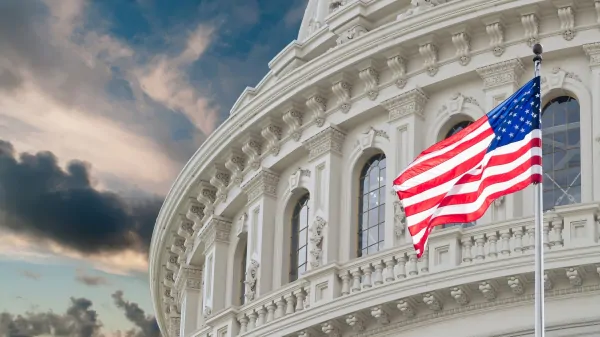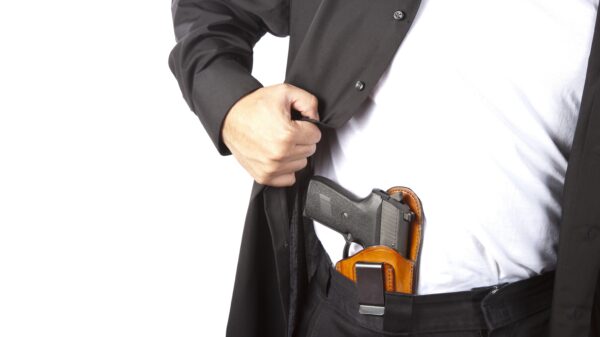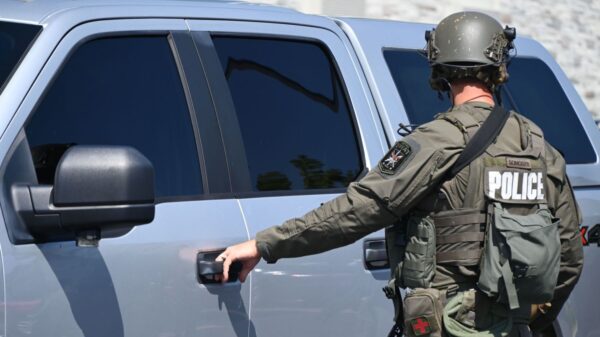By Brandon Moseley
Alabama Political Reporter
On Friday, August 21, Alabama Governor Robert Bentley (R) announced that he was creating, The Alabama Drone Task Force. According to a written statement from the Governor’s office, the task force was created to review the necessary requirements to further Alabama’s potential use of drones in areas of agriculture, conservation and law enforcement. The task force is to meet as early as this month and will send its findings to the Governor by January 2015.
Governor Bentley said in a written statement, “I believe drone use can benefit the state now and for generations to come, because drones offer many advantages to help our farmers and law enforcement agencies be successful…The task force will review Federal Aviation Administration (FAA) requirements for drone use in Alabama and establish the necessary guidelines. We have assembled a strong group with extensive knowledge and experience to serve on the task force, and I look forward to their recommendations for a statewide plan.”
The task force includes just five members: Agriculture and Industries Commissioner John McMillian (R), Transportation Director John Cooper, Conservation and Natural Resources Commissioner Gunter Guy, Alabama Law Enforcement Agency Secretary Spencer Collier and Montgomery Airport Authority Board Member Jimmy Reynolds. Commissioner McMillian has been appointed the chairman of the task force.
Commissioner McMillan said, “So many constructive uses have emerged recently for drones in agriculture, forestry and other commercial enterprises. Now is the time for the State of Alabama to be proactive with ideas that enable this rapidly developing technology to be a positive innovation for the long-term. I am honored that Governor Bentley has asked me to join this worthwhile endeavor that will yield great benefits now and in the future.”
According to the Governor’s statement, the task force is expected to: study the requirements for drone operations in Alabama, and the process for FAA approval; apply for necessary FAA waivers for drone use in Alabama airspace; meet with stakeholders to discuss plans for drone use; and recommend a statewide plan for drone use in Alabama.
The first meeting of the Drone Task Force is scheduled for Friday, August 29, 2014, in Montgomery and the statewide drone management plan is due to the Governor before January 15, 2015.
Farmers want to be able to use drones to monitor their crops and their livestock, which are often in large fields; not all of which are easily accessible. Similarly, forest owners want to be able to closely follow how their trees are growing.
Drones can cover a lot of ground quickly, much faster than a farmer or forester can on foot and can go places that a pickup truck or even a motorcycle or ATV cannot, such as across a rain swollen creek or drainage ditch.
In theory, drones would will allow managers to do things like: check cows that may need assistance at calving; check a growing crop for pests like corn borers, grass hoppers, or boll weevils so that pesticides can be applied before crop losses occur; check a growing timber crop for the potentially devastating pine beetle; check properties for invasive species like cogongrass, kudzu, fire ants, privet hedges, etc; monitor wildlife to identify where more hunting pressure needs to be applied and where less hunting pressure is needed; check properties for wild hogs; guard against illegal timber cutting, poaching, or rustling; check for storm damage; monitor fence lines, etc.
Drones also have applications for law enforcement. Potentially these could include: covering a lot of ground in detail very quick when a child or other person is reported missing; checking for illegal marijuana crops being grown in Alabama’s fields and forests; monitoring suspected crack houses; looking for poachers or others violating Alabama’s game management laws; looking for stolen cars and farm machinery; monitoring traffic; helping check to see if a city’s zoning and codes are being violated.
Drones also have potential applications in fields such as: land developers, real estate managers, surveyors, engineers, security companies, private investigators, insurance adjusters.
Some privacy advocates worry that the police having too many “eyes in the sky” could mean a loss of privacy and perhaps mean a weakening of the fourth amendment which protects us from illegal searches and seizures. Some worry that allowing drones in the hands of the general public could make spying/stalking much easier.
For example, could a jealous spouse or boyfriend/girlfriend hire a private investigator to monitor their romantic interest’s movements with drones? Or could our home owner’s association (HOA) use drones to monitor our lawn and other regulations? Is there a potential for criminals to use the drones to monitor homes they intend to target?
Potentially, drone surveillance could tell a criminal who isn’t and who is at a home they were monitoring as well as when the regular police patrol has passed by or is tied up at an accident investigation. Could terrorist groups like Al Qaeda use drones to take down a plane by flying it into a jet engine’s air intake?
The task force will have to weigh the positives and the negatives when formulating Alabama’s drone plan and set the regulations accordingly.






















































